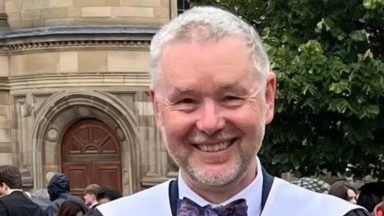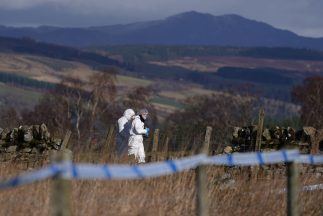“I still don’t understand where we are after 2014. All we need is another 5-6%. We’ve had Brexit, we’ve had Boris Johnson, we’ve had Liz Truss and all sorts of calamities but we’re still not quite there with independence.
“So there’s still work to be done to convince people.”
That’s the view from Alex Matheson, a long-time SNP member and independence campaigner, echoing a sentiment felt among many at the party’s conference last month.
He’s noticed that what was once a positive and hopeful campaign has become a bit gloomier in recent years.
“We need to show what independence can offer the people of Scotland rather than talking about the limits of devolution,” Mr Matheson said at the Edinburgh International Conference Centre.
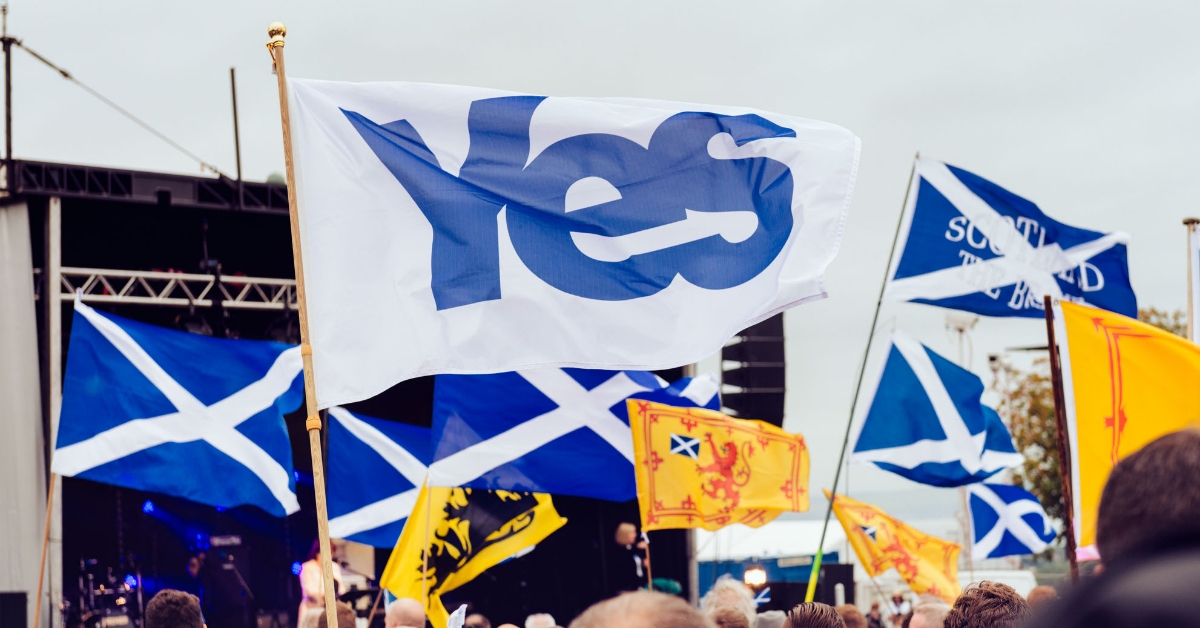 iStock
iStockIt’s a far cry from Nicola Sturgeon’s packed-out Hydro conference of 2014 when, in the face of defeat, the party membership exploded and the end goal of independence still felt within reach for many.
This time around though, the SNP was examining why things had got so bad, both for the party and the wider independence movement.
Despite the polls remaining largely stagnant, with roughly half of the country either Yes or No, the likelihood of a second referendum seems further away than ever.
For one married couple from Wester Ross, who asked to remain anonymous, even the previously universally accepted route to independence is in doubt.
“Who’s to say we are going to have another referendum?” they both agreed. “I don’t think we’ll get independence through a referendum.
“I think it will have to be through some other mechanism because Westminster has more or less said you’re not getting it that way.
“And we are now in the process of seeing all the other ways it could happen.”
One such process was attempted by the SNP this summer, with the party’s previous conference agreeing that if it got a majority of Scottish MPs at Westminster it would immediately try to begin independence negotiations with the UK Government.
That process was borne out of the realisation by many that Westminster won’t allow a second referendum any time soon so the party must look elsewhere to fulfil its raison d’être.
But the SNP lost most of its MPs in July, going from 48 to just nine.
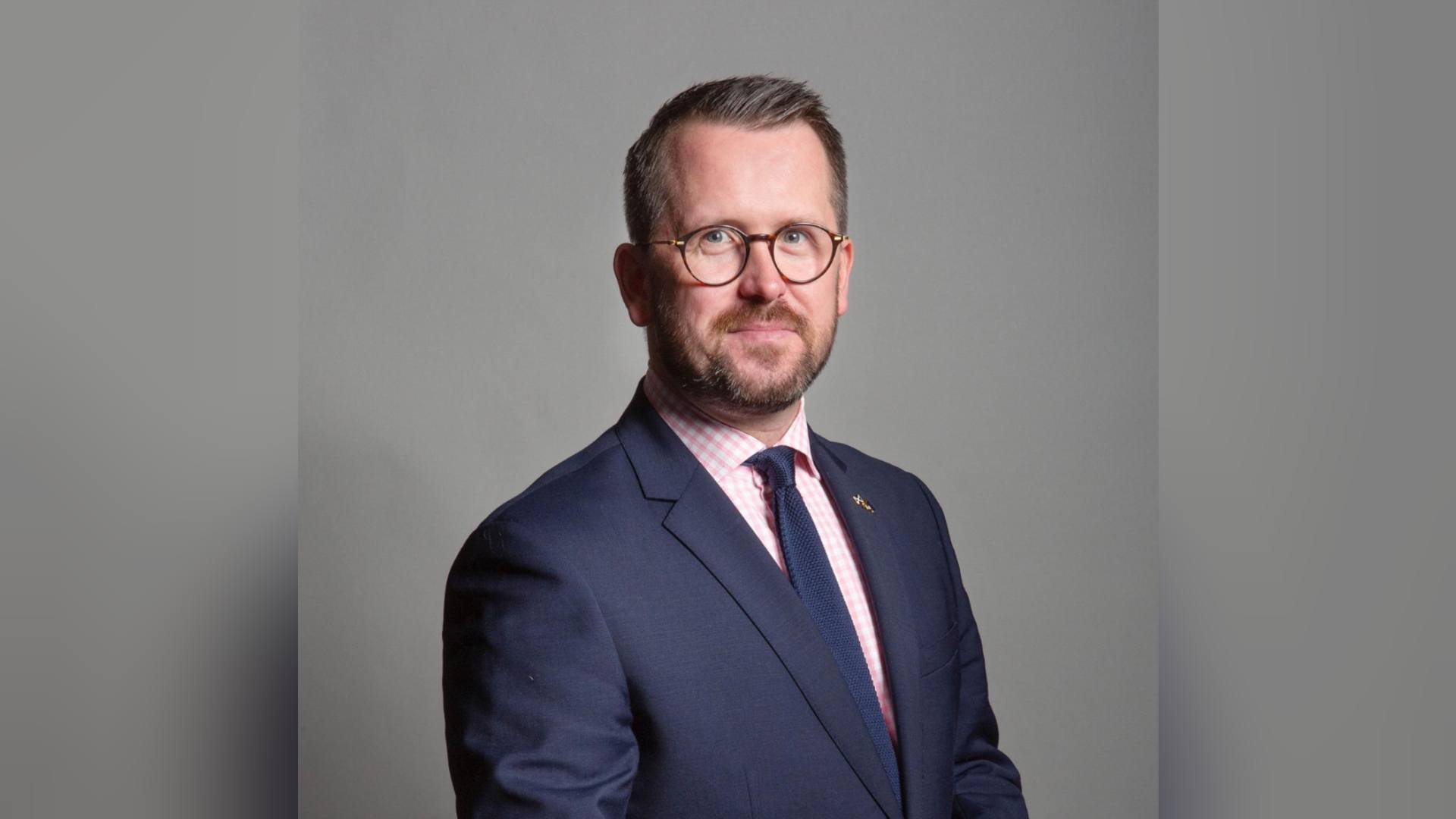 UK Parliament
UK ParliamentStewart McDonald is one of those former MPs. The Glasgow South politician, who was first elected in 2015, said independence “plainly isn’t around the corner”.
“I don’t think anyone can say with a straight face a referendum is happening anytime soon,” he told STV News.
That sentiment was widely felt among those attending the SNP conference – so how would the party and the wider movement get to independence, whatever their route?
According to McDonald, the first step was delivering good public services in Scotland.
“If people feel crap about how things are, good luck having a conversation about constitutional change,” he said.
That was the view from a great many in the SNP: that good governance is essential to convincing people to back independence.
For some members, that meant abandoning recent “controversial policies” for bread-and-butter issues such as the economy, health and education.
The ill-fated gender recognition reforms, the Hate Crime Act and the deposit return scheme are among some of the policies that led to vocal criticism even from within SNP ranks.
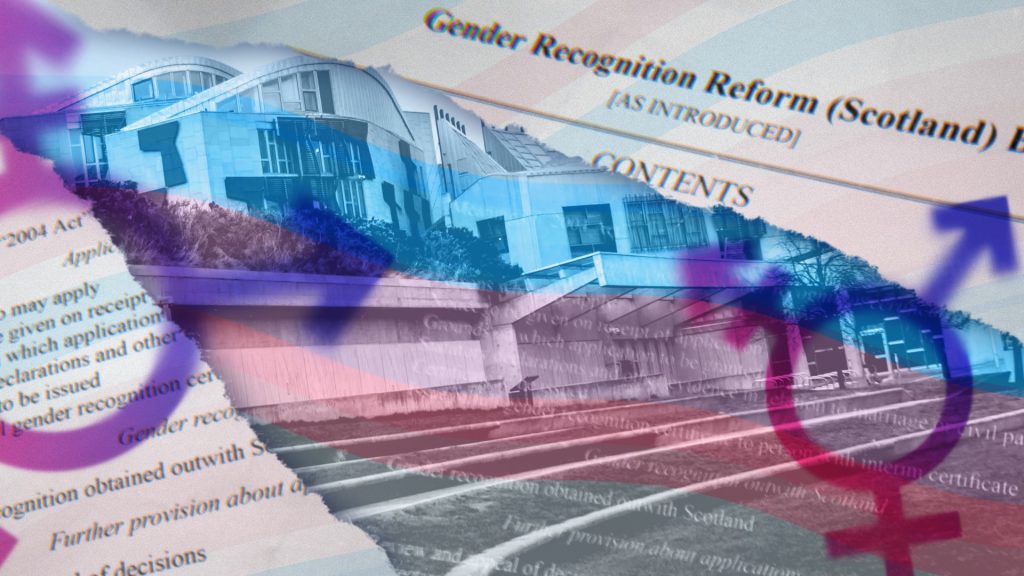 STV News
STV NewsTommy Sheppard, another former SNP from the 2015 intake who lost his seat in the summer, echoed McDonald’s for patience.
He said: “We need to accept there is no quick fix, we need to rebuild the case for independence and relate it to the everyday experience of people and we need to work out a route to independence and demand and assert the right of the Scottish people to choose their own future.”
What that route should look like though will likely be fraught with debate, and not everyone in the party wants to take the patient path tread by the likes of McDonald and Sheppard.
One SNP member and Yes biker, who wanted to remain unnamed, told STV News that “things are going to change very quickly” when asked where the independence movement should go.
“I think come 2026 a vote for the SNP is going to be a vote to dissolve the union and reconstitute Scotland as an independent nation-state,” he added before leaving the room.
SNP councillor Stefan Hoggan, who stood in North East Fife but didn’t win, doesn’t agree.
Like other elected SNP politicians, he thinks patience is needed, something that proves more divisive among independence supporters more generally.
The 31-year-old says a referendum is the only route to independence but to get there would take getting the overwhelming majority of Scots on side.
“Once we’ve convinced the people of Scotland and have got closer to that 60% and above Westminster won’t be able to deny a referendum any longer and that’s when Scotland will become independent,” he added.
But how do Yes supporters convince the roughly half of Scots who still don’t want to leave the UK and become independent?
One woman, who asked to remain unnamed, was among the majority of members STV spoke to who called for greater unity within the movement, which has become increasingly fractured.
“The party has to figure out where it sits within the wider movement,” she said. “I don’t think the cause can be linked to just one party. I want the SNP to put out a hand of friendship to other groups.
“That’s a two-way street,” her friend, whose daughter was one of the MPs who lost her seat in July, interrupts.
“But someone has to make a start,” the woman replied.
But who would that be? There are three main independence-supporting parties in Scotland – the SNP, the Greens and Alba – and they do not have a great history of getting along.
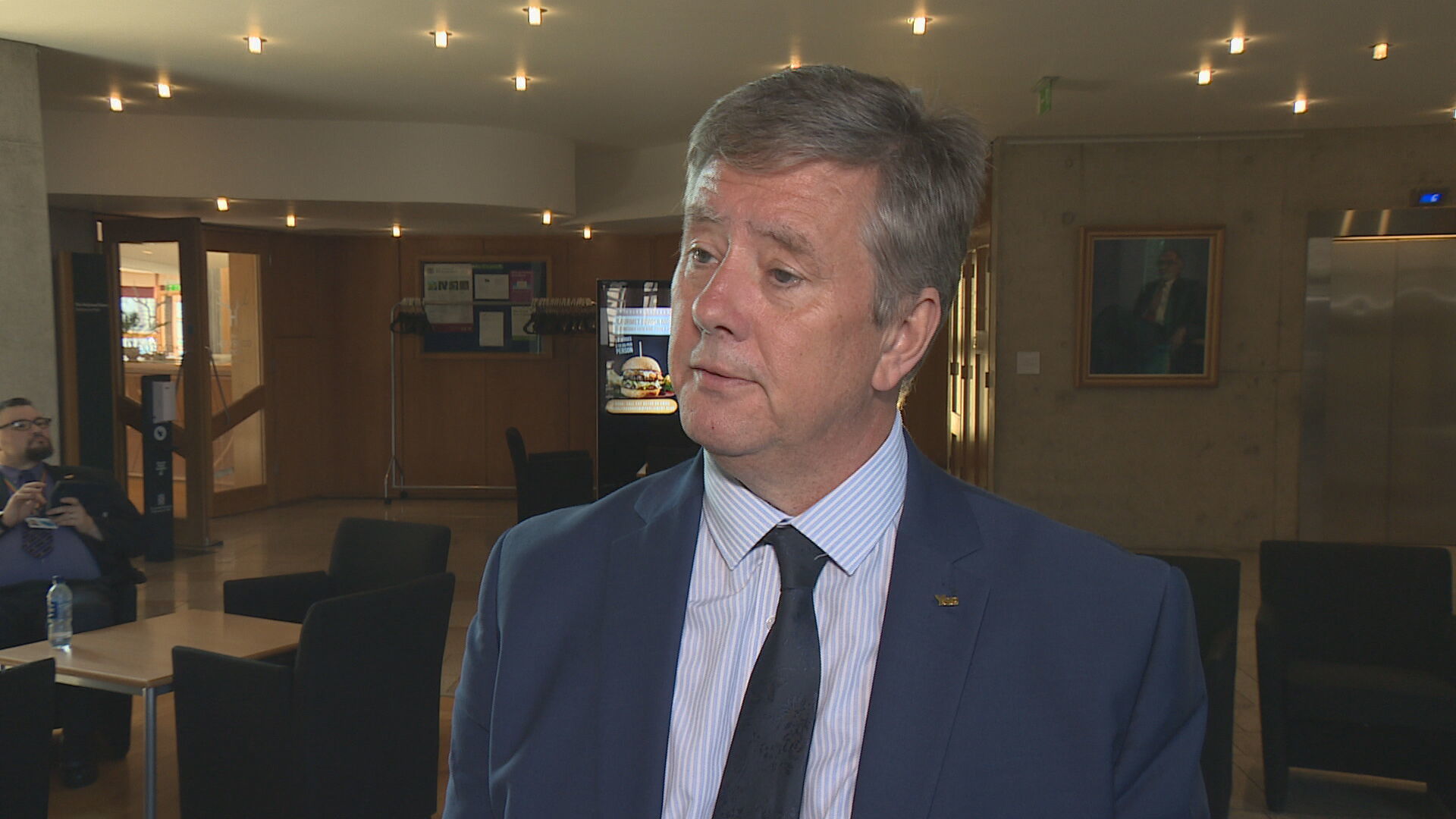 STV News
STV NewsBut that doesn’t mean efforts to unify are non-forthcoming. Keith Brown, the deputy leader of the SNP, told STV News he wants to see a cross-party independence convention.
“It’s not Yes parties I’m talking about,” he said, “it’s everyone who believes in Scotland’s democratic right to choose.
“As well as that we should be animating the international support for Scotland’s democratic right to choose and also doing a much more broad-based civic based campaign.
“That’s my view but we have to have the discussion within the SNP and take it from there.”
For many people who spoke to STV News, there is a clear impatience but also an acceptance that independence may not be “right around the corner”.
And while there were common themes in their answers – unity with the Yes movement, delivery in government and building up public support – there wasn’t concrete agreement on how these would be achieved and how it would lead to a second referendum.
And with polls suggesting the SNP could lose the Holyrood election to Labour in 2026, there will be fears that the worst is yet to come.
But for the many members who have seen the SNP go from the edges of Scottish politics to the centre, a result will be worth the decades-long wait.
“I believe the cause of independence is far from dead,” one veteran campaigner. “My late father was in the independence movement since the 1940s. It’s always been like the tide: sometimes it goes up and sometimes it goes down.”
Another joked: “I’m just waiting on the starting gun – although I’ve been waiting a while.”
Follow STV News on WhatsApp
Scan the QR code on your mobile device for all the latest news from around the country


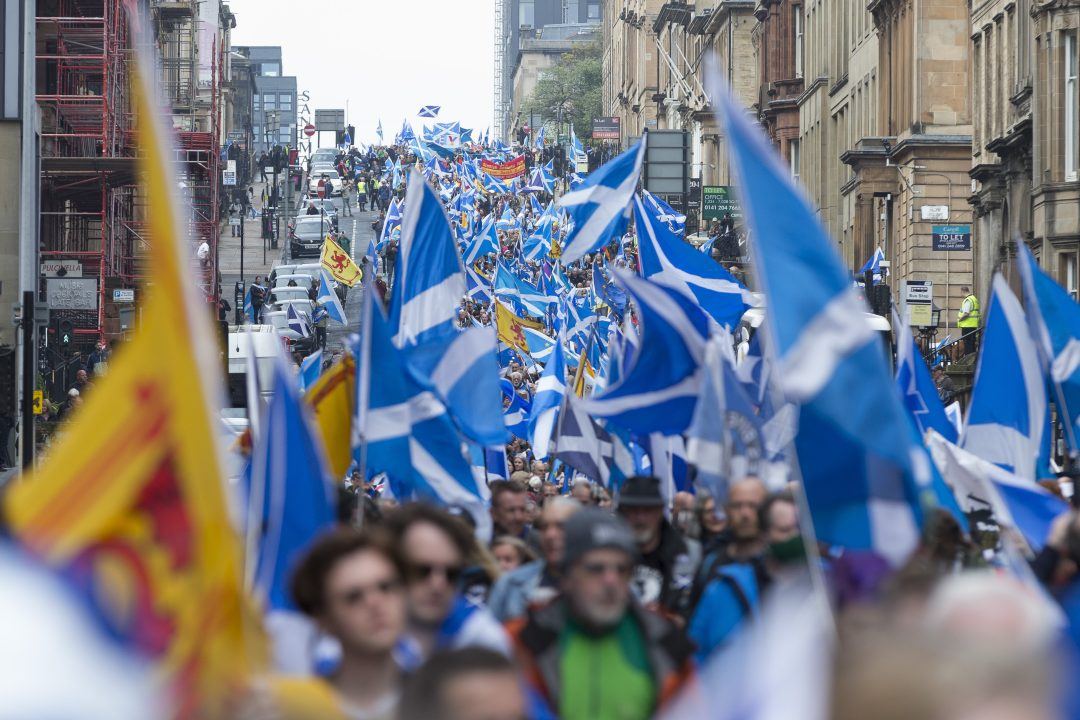 Getty Images
Getty Images





